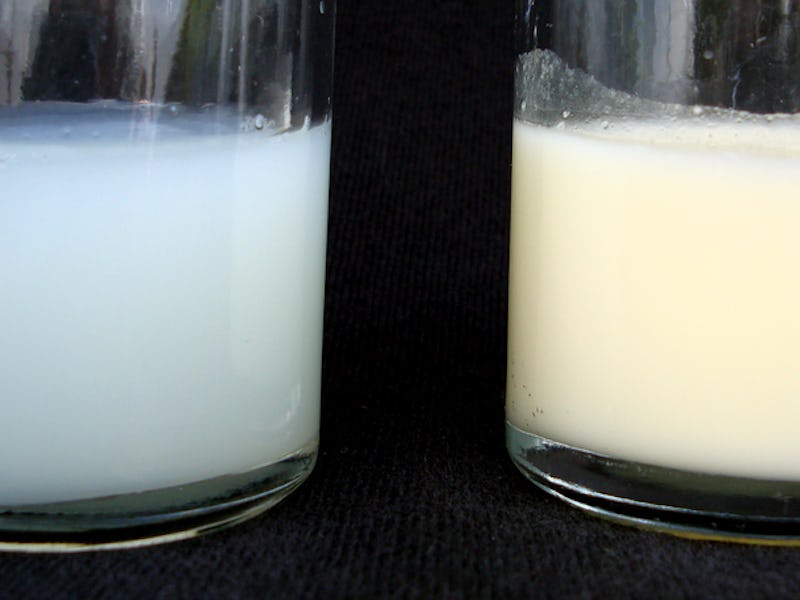Drinking Human Breast Milk Can Give You STDs
Without pasteurization, there's no knowing what's in there.

Bodybuilders and cancer patients are drinking raw, nutrient-rich human breast milk — at the risk, it turns out, of contracting sexually transmitted infections. The Journal of the Royal Society of Medicine is now warning non-baby milk drinkers that unpasteurized breast milk could give them HIV, hepatitis, and syphilis.
We’ll give you a sec to let your stomach settle. You good? All right, onward with the human-harvested, hepatitis-rich recovery shakes.
Raw breast milk is touted as an all-natural, protein-and nutrient-filled energy drink, making it very enticing to body builders and the chronically ill, in addition to new mothers who need it to supplement their babies’ diets. Some people believe, though it’s not proven, that the milk can improve strength, fight cancer, boost immunity, and even treat erectile dysfunction.
For such an elixir, people pay serious dough. A breast milk classifieds site, Only the Breast, asks its readers: “Are you over producing and want to list your liquid gold for sale?”. The going rate is about $1 to $3 an ounce. This website does warn users to screen their donors and pasteurize milk before consumption, but it doesn’t offer resources for how to do so properly.
Bodybuilders buy the milk believing that it has more casein protein than animal milk and that its growth hormones boosts strength training. Researcher Sarah Steele of Queen Mary University of London, however, wants to make it clear: “Nutritionally there is less protein in breast milk than other milks like cow’s milk. Potential buyers should be made aware that there is no scientific evidence that adult consumption of human milk for medicinal properties offers anything more than a placebo effect. Moreover, human breast milk is potentially very hazardous if used to replace a healthy balanced diet.”
The greatest risks come from the fact that human breast milk is sold raw — and users are either unaware that they need to pasteurize it or are willfully ignoring the warnings — and that milk donors often claim they’ve been screened for viruses during pregnancy when in fact their records are out of date. A 2013 study in the journal Pediatrics showed that 93% of milk samples, bought online, were contaminated with bacteria. Steele insists that mothers selling their milk need to be tested regularly, because having sex after giving birth puts them at risk for contracting viruses, which could be passed on to people drinking their milk. Drugs, tobacco, alcohol, and other contaminants can also leach their way into the milk.
Historically it has been common to hire wet nurses to feed infants — essentially the same thing as buying milk online and feeding it to your child (or, in this case, adults). Why wasn’t this considered a problem before? Chances are, we just didn’t know: a wide range of studies now prove that the transmission of viruses via breast milk is a very real concern.